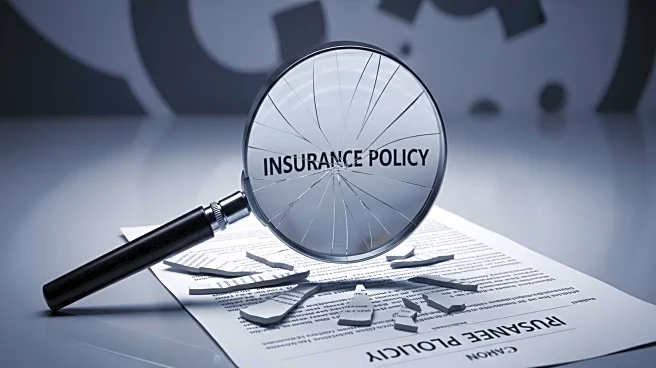What is the story about?
What's Happening?
Wendy Osefo, a star from 'The Real Housewives of Potomac,' has been arrested alongside her husband, Edward Osefo, for allegedly committing insurance fraud. Maryland authorities claim the couple staged a break-in at their home to file fraudulent insurance claims totaling over $450,000. The claims included items that had been returned for refunds, such as a Dior shirt and a Gucci wallet. During a search of their home, deputies reportedly found 15 items that were claimed as stolen. The Osefos have been released on bond and are preparing for their court appearance, while requesting privacy during the legal proceedings.
Why It's Important?
This arrest adds to the legal troubles surrounding the cast of 'The Real Housewives of Potomac,' impacting the show's reputation and potentially affecting its viewership. The case highlights issues of financial strain and the lengths individuals may go to alleviate debt, raising questions about the pressures faced by reality TV stars. The scandal could influence public perception of the show and its cast, affecting Bravo's programming decisions and advertising revenue. Additionally, it underscores the importance of integrity in insurance practices, potentially prompting stricter regulations and oversight in the industry.
What's Next?
The Osefos are expected to face legal proceedings where they will defend against the charges of insurance fraud. The outcome of the case could have significant implications for their personal and professional lives, including Wendy Osefo's role on the show and her career as a political commentator. The legal process may also lead to increased scrutiny of other cast members and their financial dealings. As the case unfolds, it may prompt discussions on the ethical responsibilities of reality TV stars and the impact of fame on personal conduct.
Beyond the Headlines
The scandal involving Wendy Osefo and her husband highlights broader cultural issues related to reality television, including the pressures of maintaining a public persona and the potential for financial mismanagement. It raises ethical questions about the portrayal of wealth and success on such shows, and the influence this has on viewers' perceptions of reality. The case may also lead to discussions about the societal impact of reality TV, including its role in shaping public attitudes towards wealth, fame, and personal responsibility.















